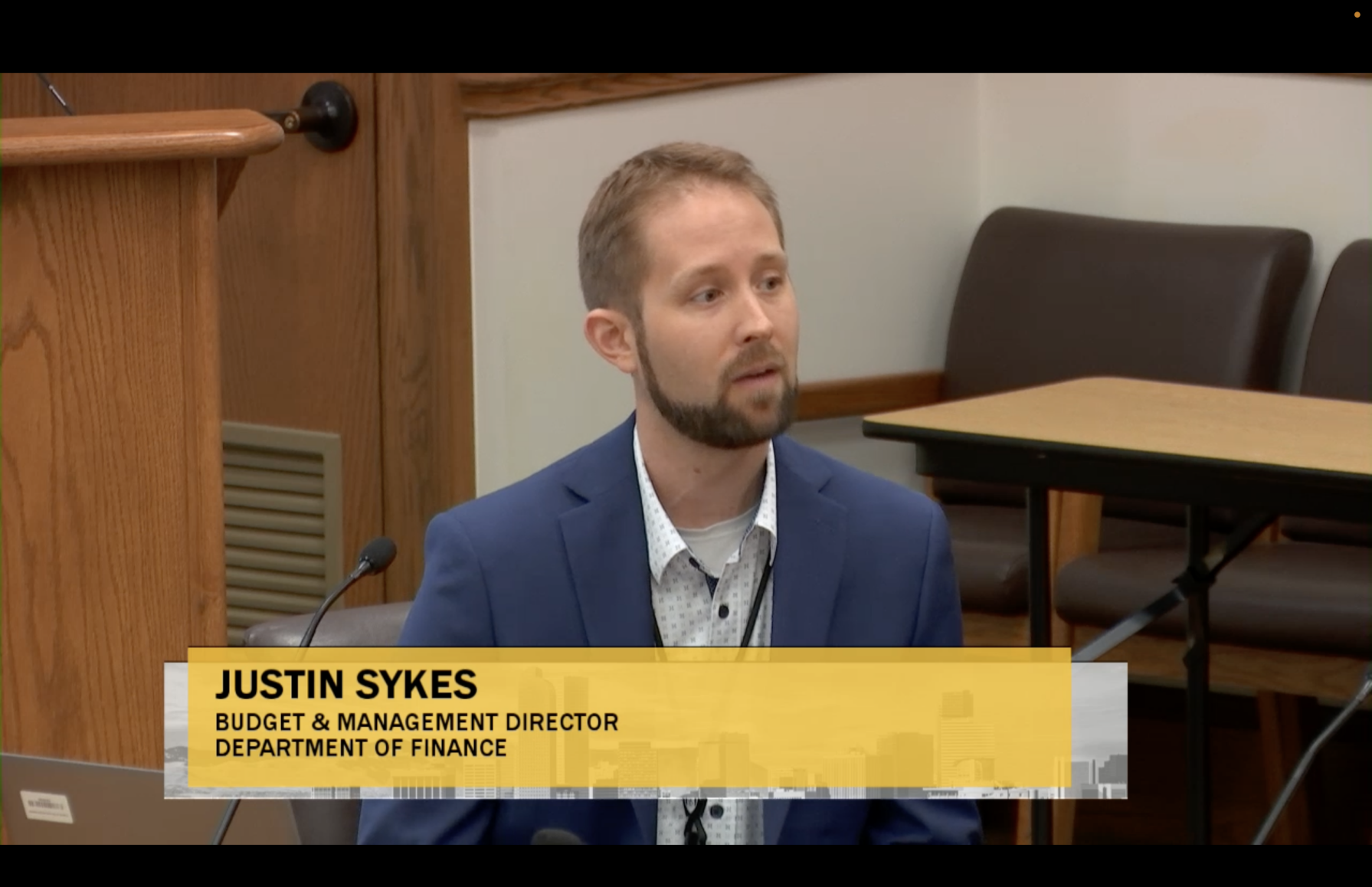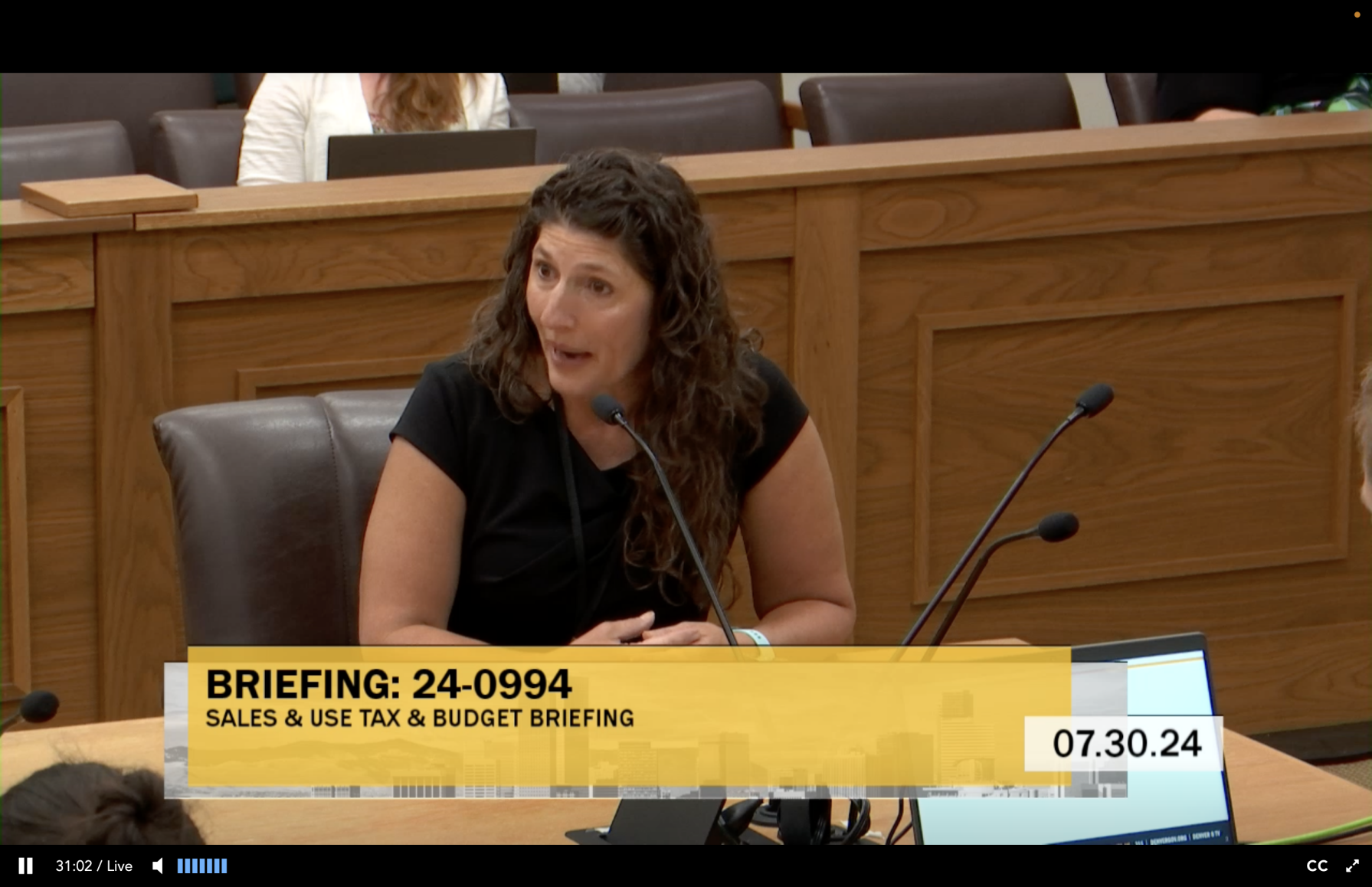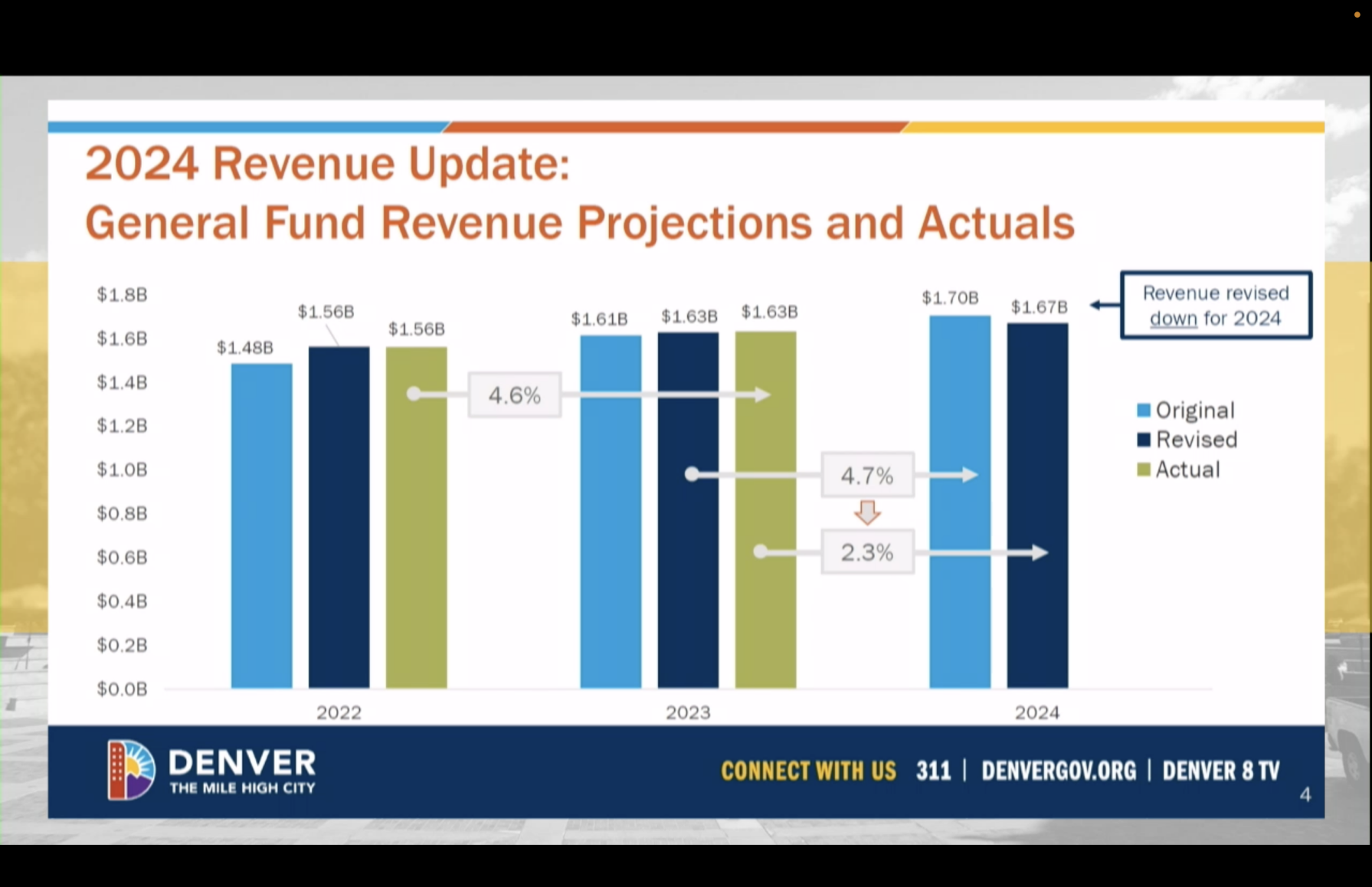Denver revenue forecast declines amid increase in spending, decrease of sales tax income

Justin Sykes, the budget and management director, addresses a Denver City Council Committee on projected general fund revenues for 2024. The revenue is lower than expected, and will impact the 2025 budget, potentially seeing the city dip into its fund balance. (Courtesy, City of Denver)
City of Denver video feed screengrab
The Denver Department of Finance informed a City Council committee the city will have even less money available for the 2025 general fund after revising revenues from this year. The change is partly driven by slumping or stagnant sales tax revenues, which provide more than 50% of the general fund’s revenue.
Originally, the city was expecting to receive roughly $1.7 billion in 2024 revenue, but this was based on early predictions that the city would see a 4.7% increase in revenue compared to last year.
Even with earlier projects, city officials warned councilmembers on Tuesday of a potential need for budget cuts citywide, to the tune of about 5% for every department. Total revenue appears to be lower than initially predicted, with the Department of Finance cutting its original projected revenue to $1.67 billion in 2024.
Between 2022 and 2023, the city saw revenue from the general fund grow from $1.56 billion to $1.63 billion — or about 4.6%. Initially, estimates for revenue from 2024 followed that trend, with an increase in revenue of 4.7%, increasing from $1.63 billion to $1.7 billion.
And that’s unlikely to change, according to Justin Sykes, the budget and management director.
“Historically what we’ve seen, and this bears out in 2022 and 2023, is that our revised forecast ends up being a lot closer to the actual amount of revenue,” he said. “Last year when we generated that original general fund revenue forecast, we were still in the prior year. Now, we’ve got over half a year’s worth of data on how our revenue streams are performing.”
Department heads in the city were earlier told to find ways to cut spending by about 5% in order for the city to have a balanced 2025 budget, but Denver Chief Financial Officer Stephanie Karayanniss Adams said Tuesday she believes that isn’t enough.
A major driver of revenue, sales tax, is down, Adams said. The department built this year’s budget with a forecasted 4.1% increase in sales tax revenue. But that did not pan out, she said.
“When we kicked off the budget in April, one of the things we shared with you was that we were seeing significant underperformance of sales tax for six consecutive months,” she said. “When we compare month-over-month to the previous year, what we are seeing is either flat collections or we were collecting less.”
Adams emphasized the city has not made any decisions for next year’s budget and is continuing to work with departments to get final numbers for 2024.
And as Mayor Mike Johnston attempts to shore up money for various programs — addressing homelessness, sheltering immigrants and building affordable housing — some expenses may be passed on to residents.
Indeed, Johnston has proposed a 0.5% sales tax rate increase that will raise up to $100 million to build affordable housing units for the next decade. This caused concern for some councilmembers who wanted to insert a “sunset provision” to let the increase expire after a set amount of time.
The council also approved sending a 0.34% sales tax rate increase to voters that will collect up to $70 million to fund Denver Health, the city’s safety net hospital system. If all tax measures appearing on the ballot in November are approved, Denver may become the highest taxed major city in the metro area.
But these measures will do nothing to address the money Denver has spent on homelessness, which by the latest tally, is running about $67 million over budget.
In 2023, Johnston set aside $48 million. In 2024, that total dropped to $39 million for a total of about $88 million. However, the city is on track to spend $155 million since July of last year and through Dec. 31, 2024.
Because of this spending, and other priorities emerging like the illegal immigration crisis, the city risks eating into its reserve fund balance. That immigration price tag is sitting at about $90 million after Denver committed to assisting more than 42,000 people in the past two years with shelter, transportation to other cities and job training.
“We hope that that’s not the case, and I think it’s certainly possible new revenue data could surprise us,” Sykes said. “There is a possibility that we end the year with less than a 15% fund balance… the biggest implication is it really crimps our spending capacity in 2025.”
The city charter requires Denver maintain a 15% fund balance. If extenuating circumstances come about, like a global emergency such as the COVID-19 Pandemic, city officials can take steps to move money from the reserve into the normal budget – provided it doesn’t dip below 10%.”
With projected revenues of $1.67 billion, this means the fund balance for 2025 would ideally total $250.5 million. And at 10%, in the most extreme of emergencies, Denver’s reserve balance would total $167 million.
While the fund balance may end up below 15% for 2025, Adams said she doesn’t believe it will be by much — to the relief of councilmembers. And the city can rebuild it, as in the past, over the course of several years, she said.
“Our preliminary estimate is that it would dip under 15% but above 14%, but we still need to wait until everything plays out,” she said. “There’s a strong possibility, based on many factors that are still in play for the next month, that we could come in under 15%.”






